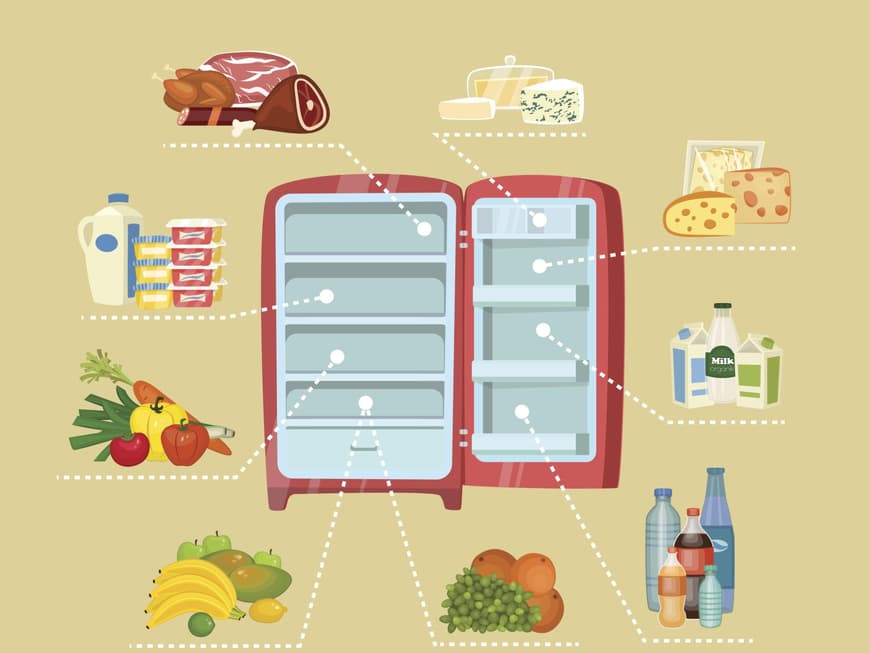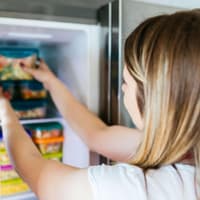
Apples
Always store apples separately in the fridge or even in the cellar. they produce a ripening gas that causes other fruit and vegetables in the vicinity to spoil more quickly.
Butter, cheese & yogurt
Dairy products are best stored in the middle. When sorting, place newly purchased goods behind the existing food so that the older products are used up first. Never pack cheese airtight, it must be able to breathe.
Meat, fish & sausage
Fresh meat, fish and sausage like it cold. As cold always sinks to the bottom, these products should be placed further down - the coldest zone is the glass shelf above the vegetable compartment.
The vegetable compartment
The vegetable compartment is called the vegetable compartment because this is where fruit and vegetables stay fresh for the longest, in this zone it is around 8 degrees cool. If you have two compartments, store fruit and vegetables separately. Tropical fruits, with the exception of lemons, do not belong in the fridge.
Open food
Place open tinned food, tinned leftovers etc. prominently in the door or at eye level so that you do not forget them and use them up quickly.
Eggs
Eggs do not like temperature fluctuations. If they are cooled in the supermarket, they should be placed in the fridge as soon as possible. They are often still good long after the best-before date. However, heat older eggs above 70 degrees before eating them.
Drinks & Co.
Store bottles of drinks, milk, sauces, ketchup etc. upright in the door. this makes optimum use of space. Open juices, for example after a long Sunday breakfast, should be chilled again as quickly as possible, otherwise they will spoil much more quickly.
The temperature
In most German households, the fridge is set too warm - this is a case of saving money in the wrong place. it should be 5 degrees or colder so that food stays fresh for a long time.






